Referred to committee: Should city council remove member of Bloomington’s traffic commission for “posting obscene and inappropriate statements…”?
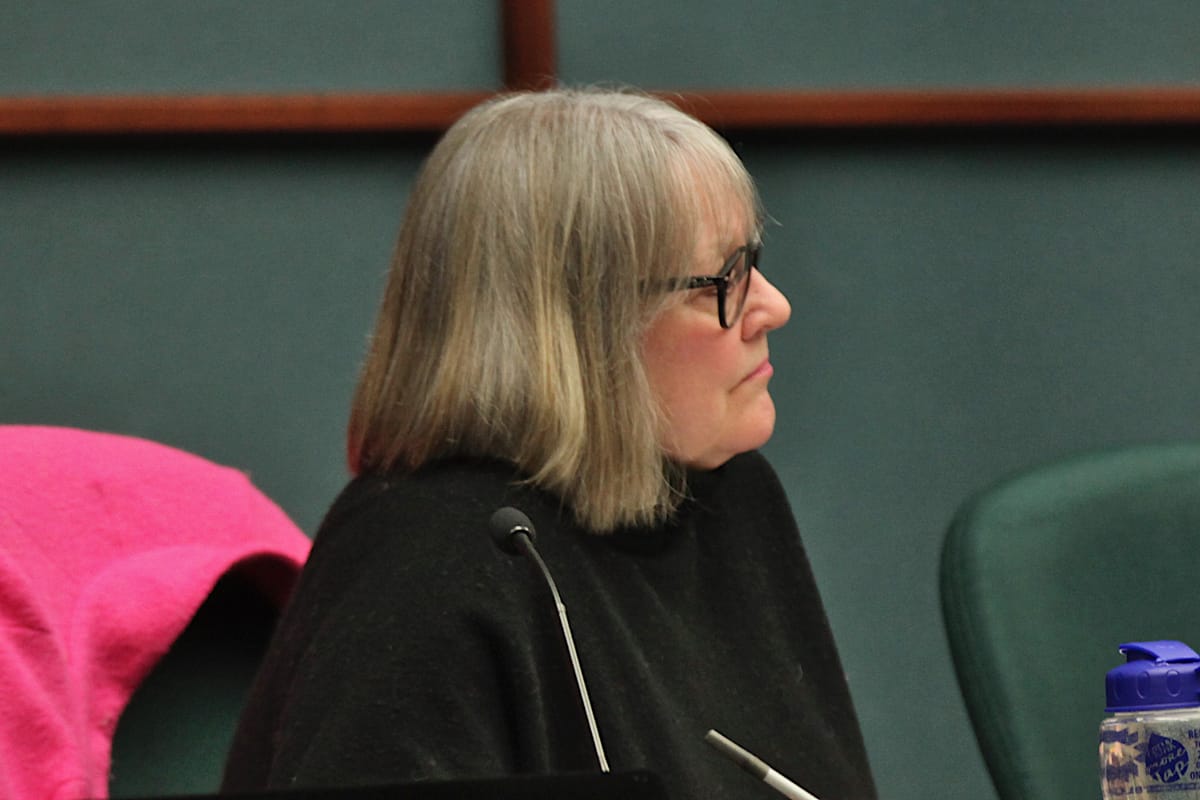
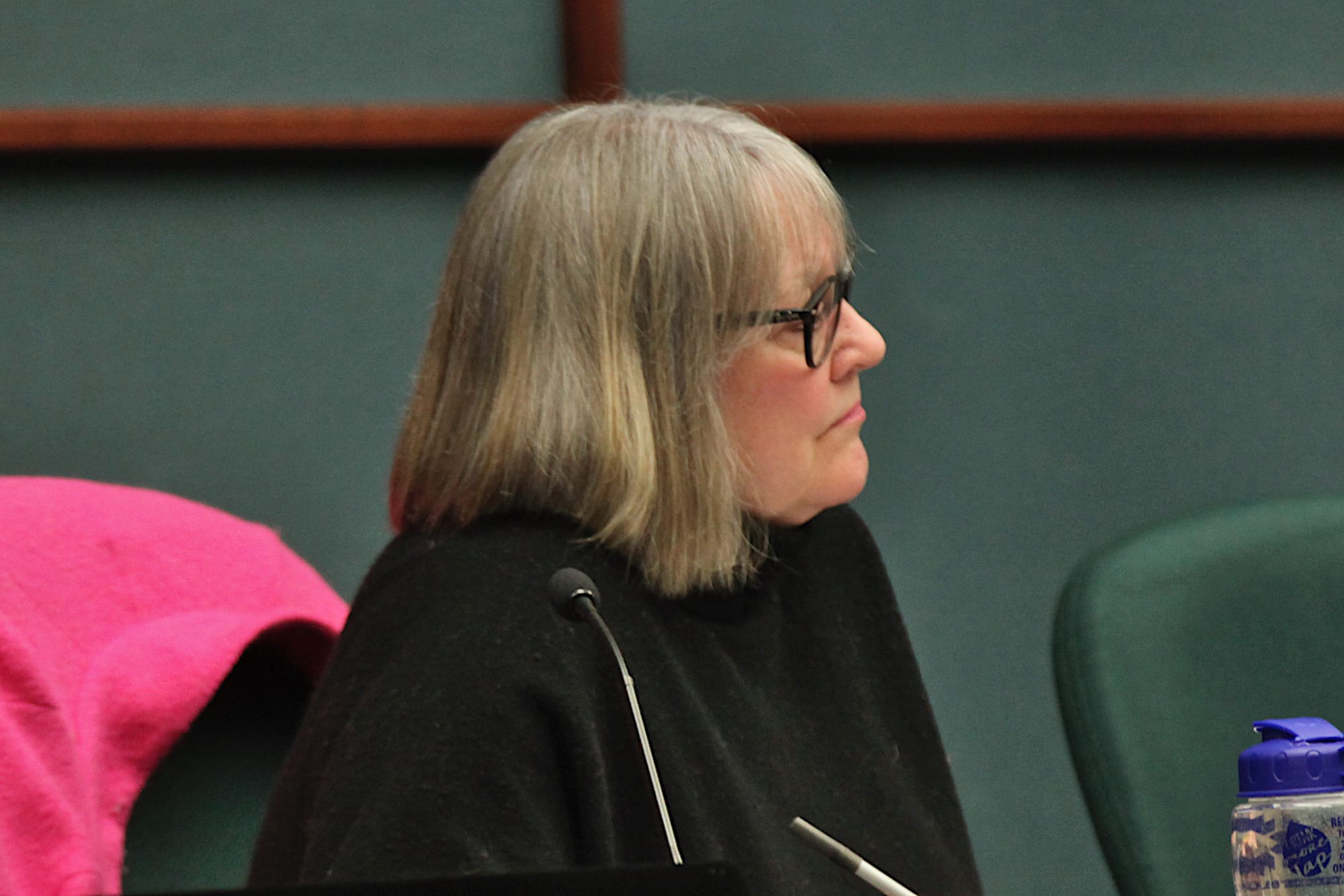
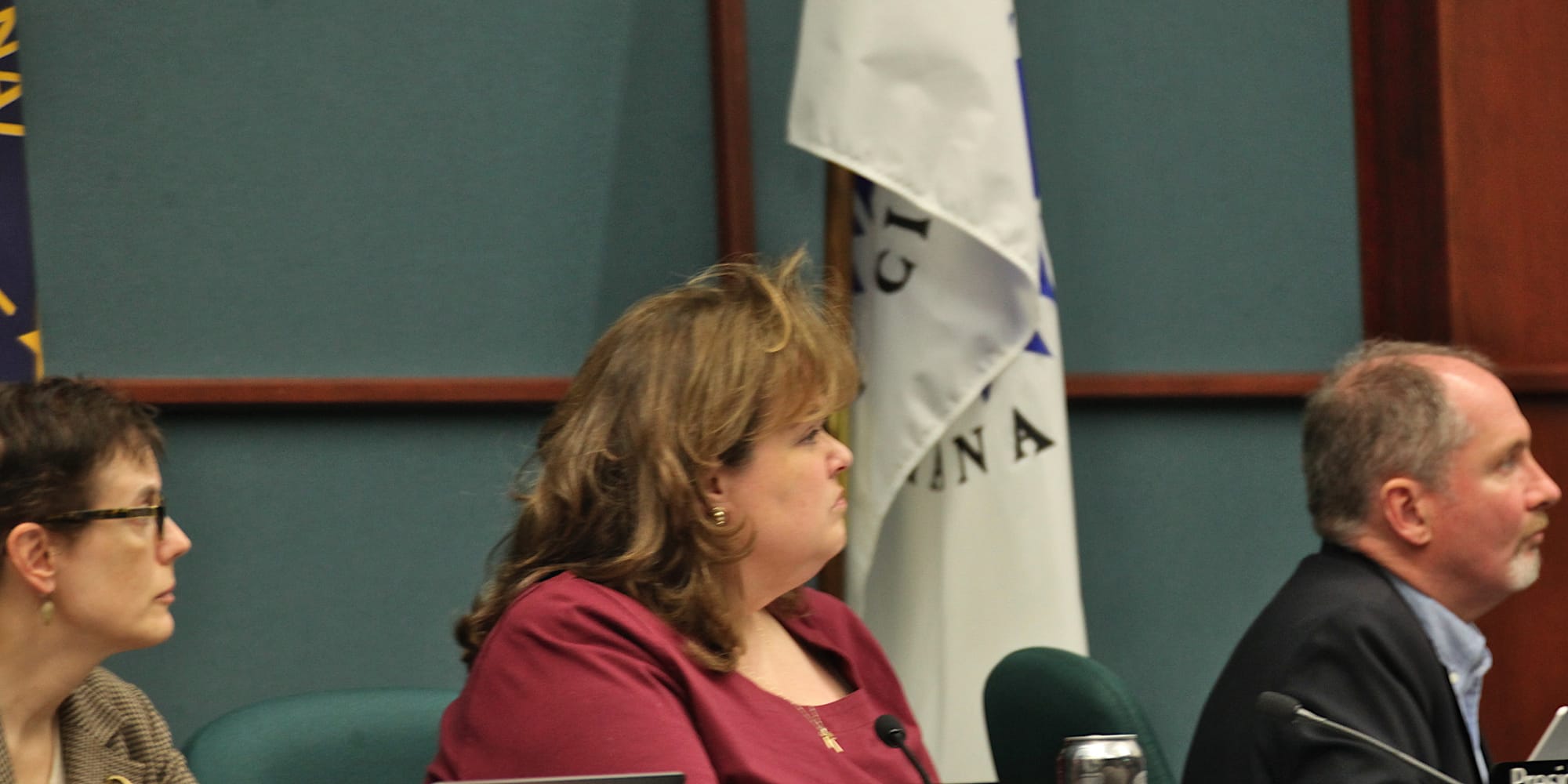
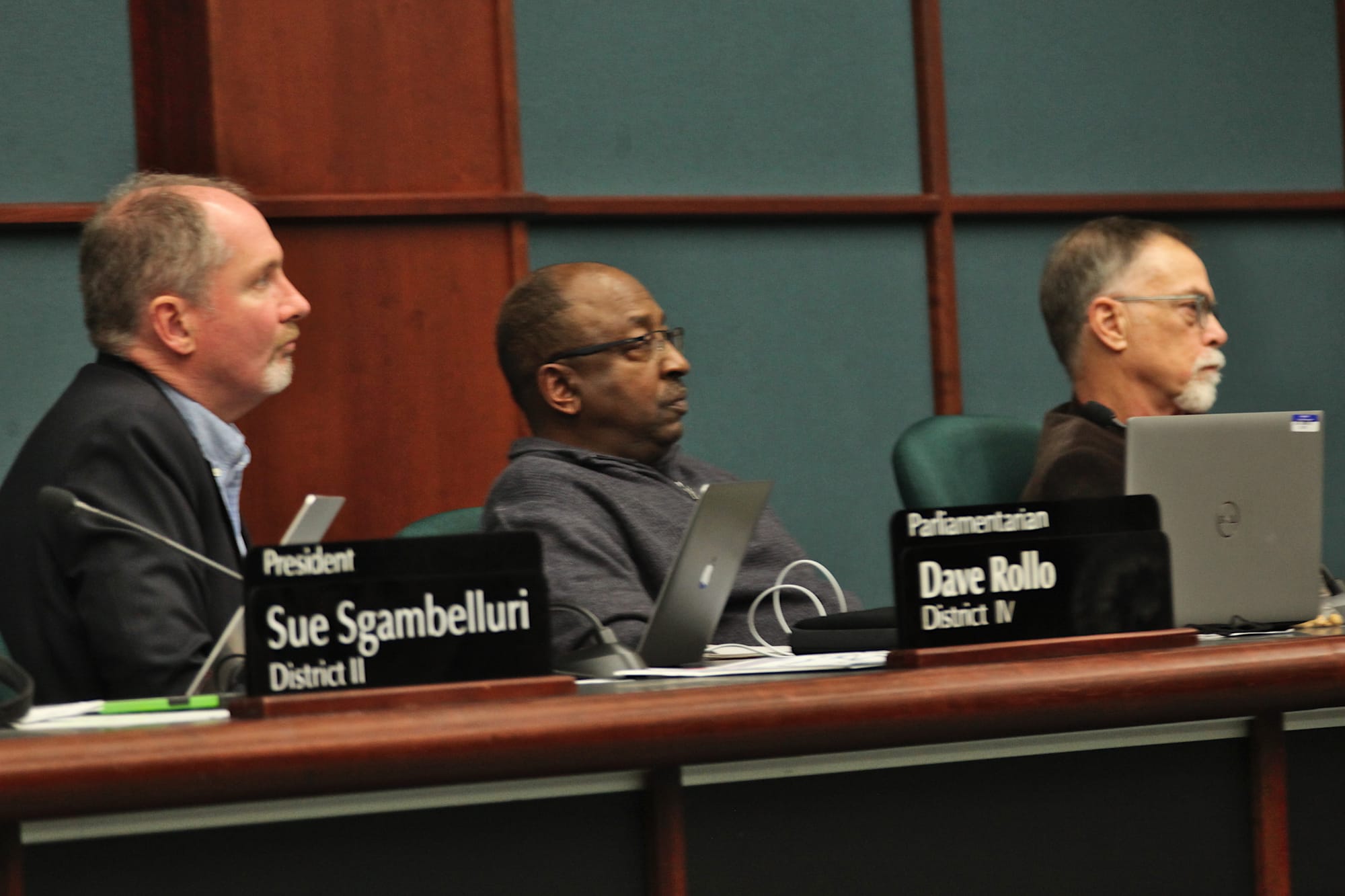
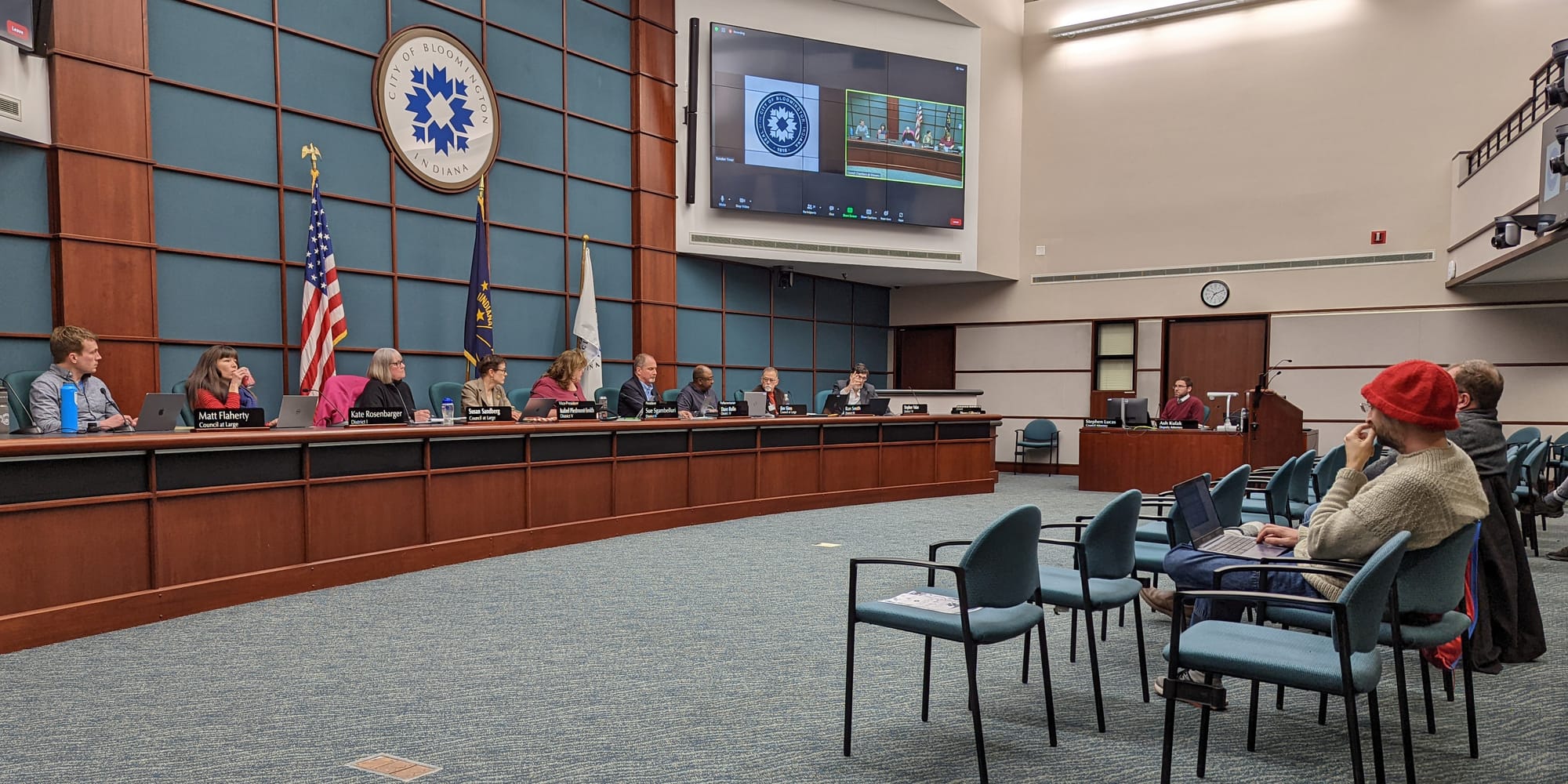
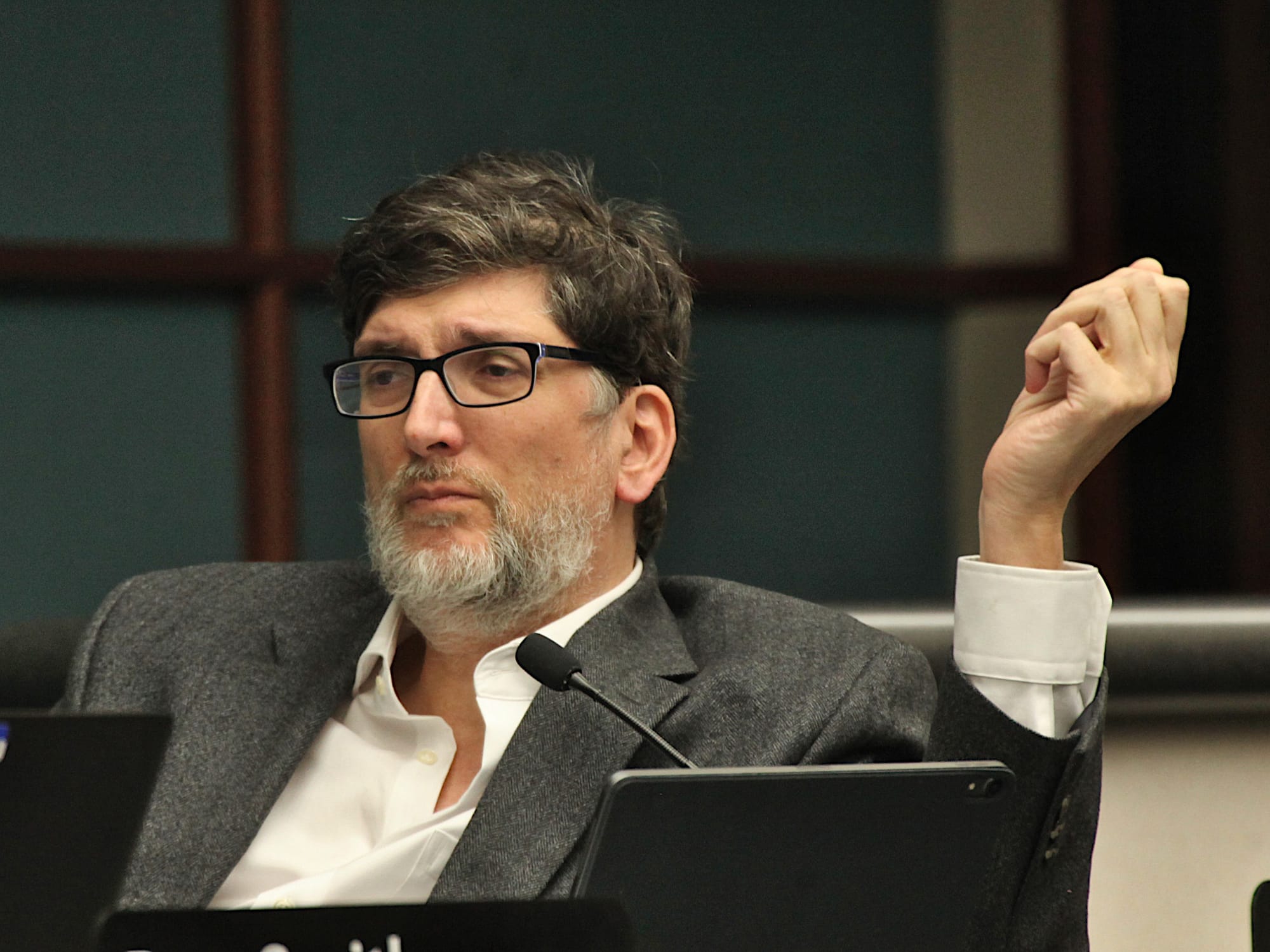
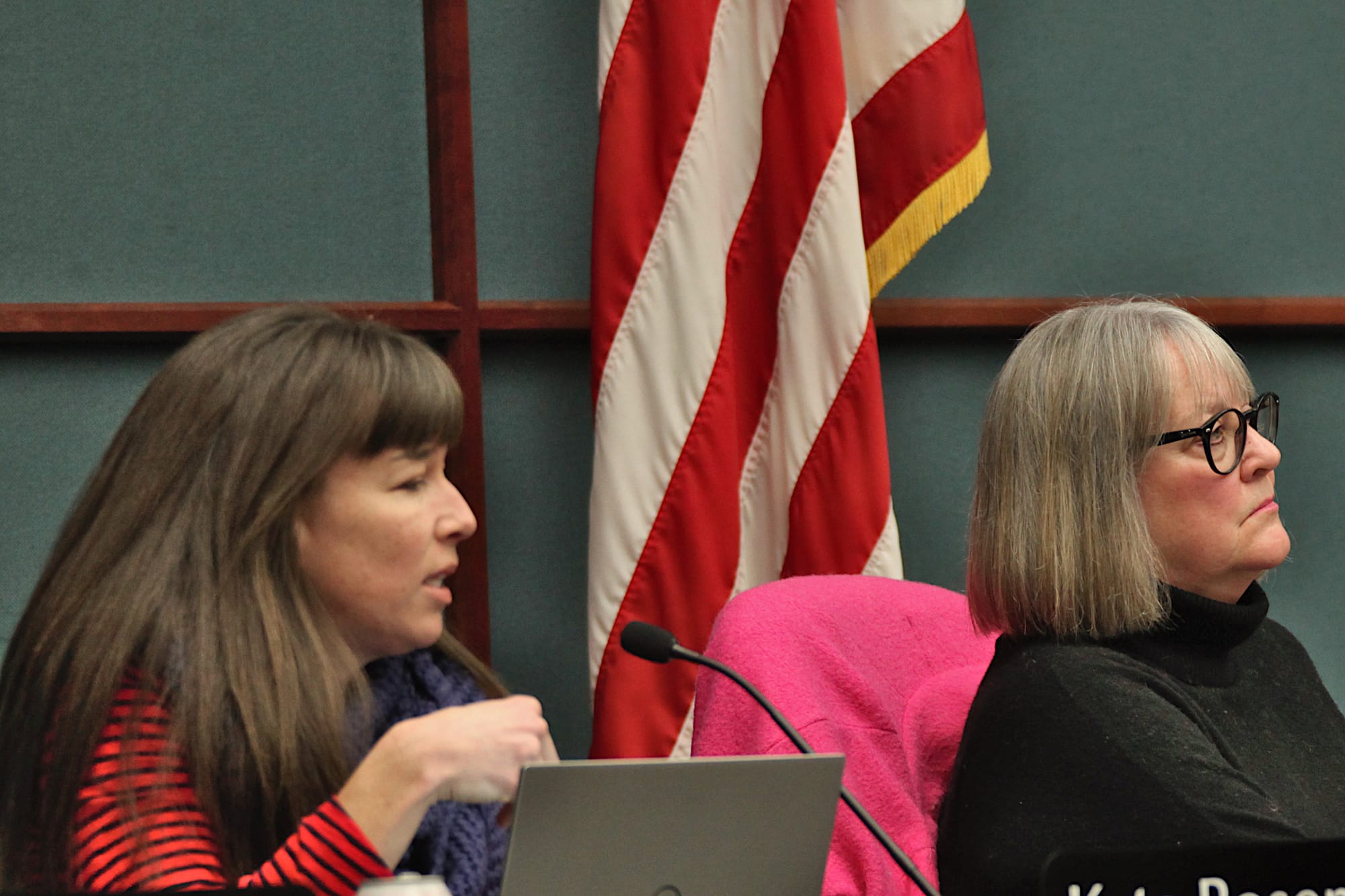
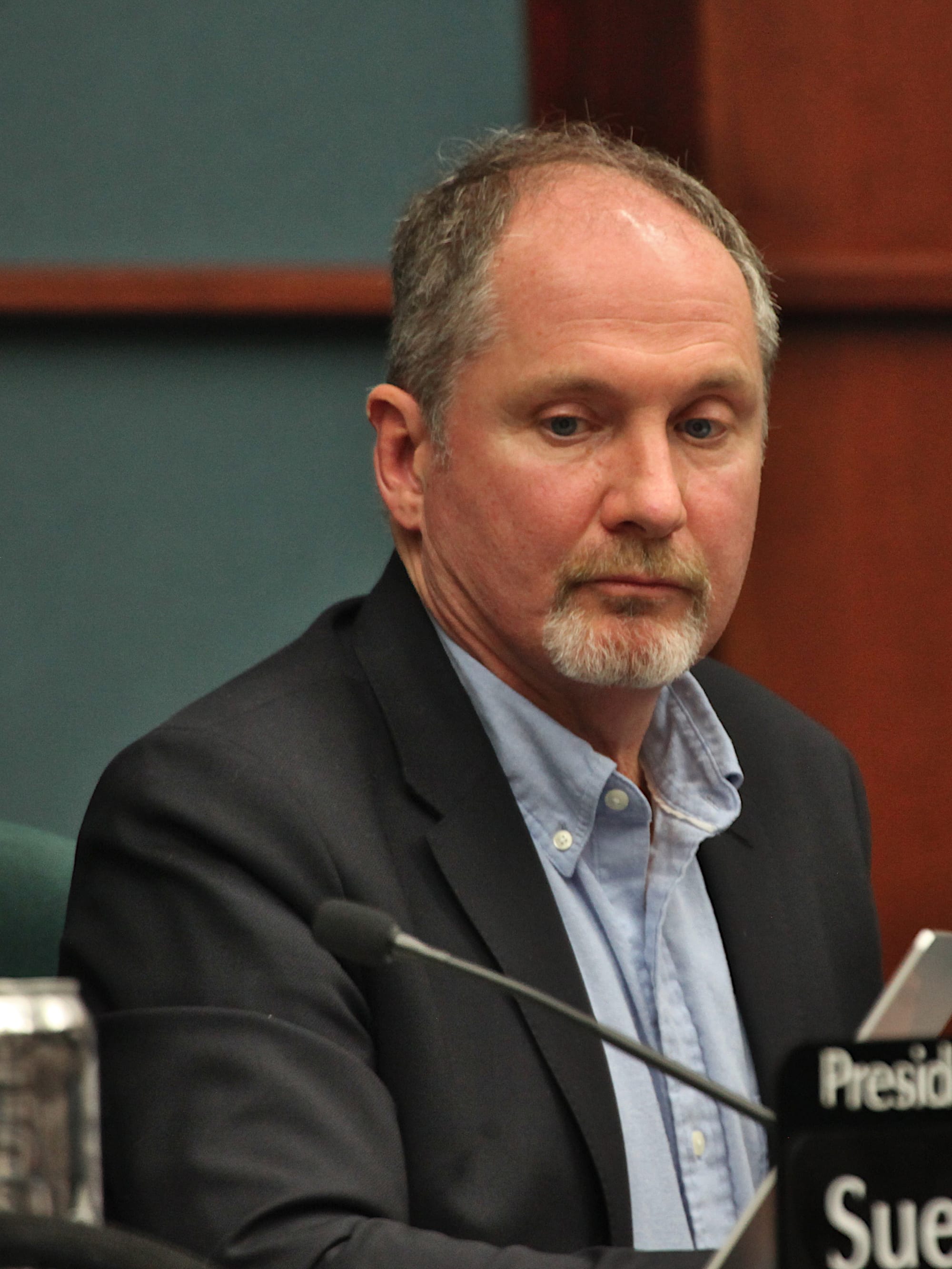
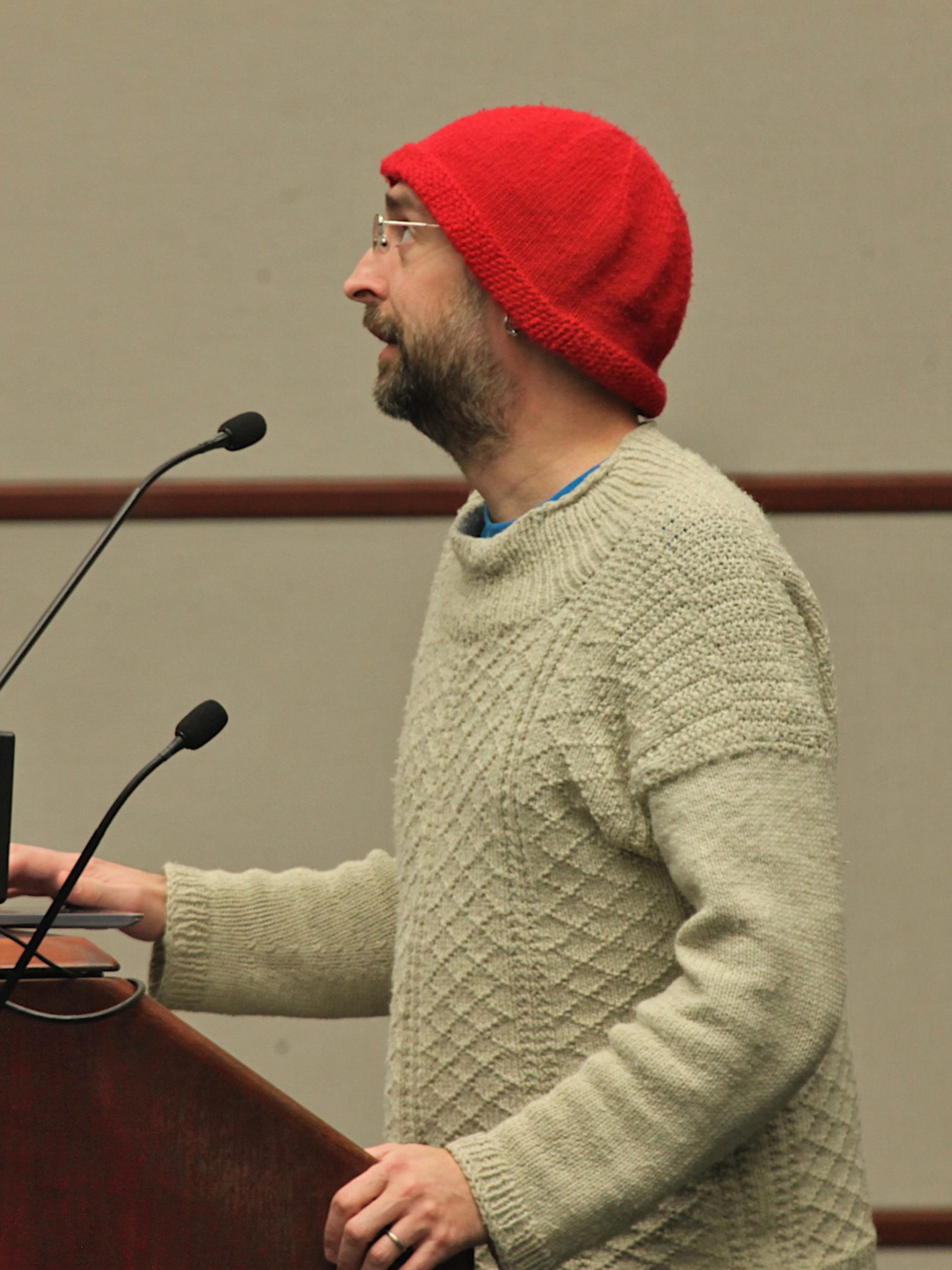
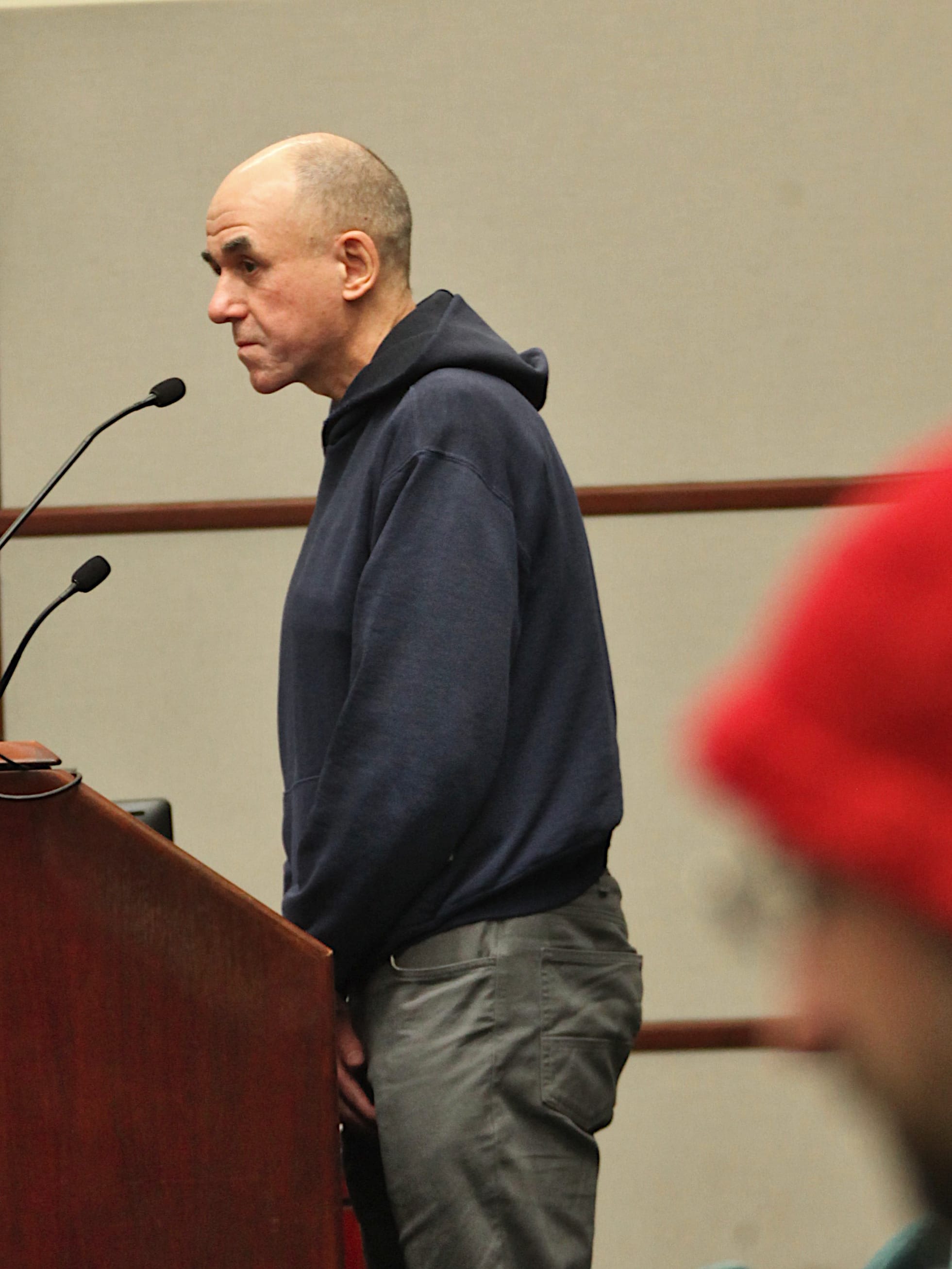
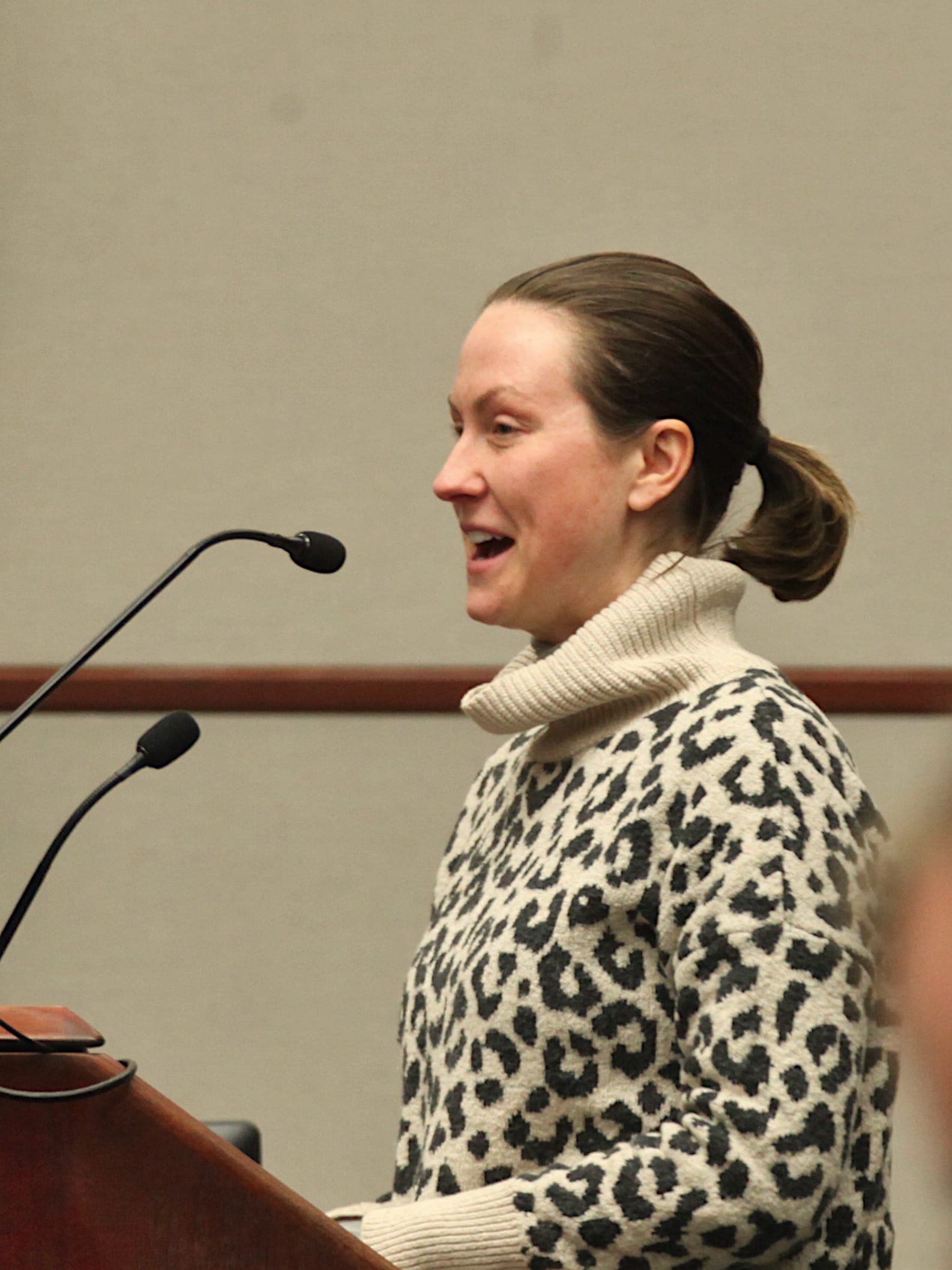
The question of removing Greg Alexander from Bloomington’s traffic commission won’t get a vote by the city council until March 1 at the earliest.
At this past Wednesday’s city council meeting, the matter was referred to a special committee that already existed, after it was appointed by council president Sue Sgambelluri at the first meeting of the year.
By March 1, the four-member special committee on the council’s legislative processes is supposed to deliver to the full council some kind of recommendation on the question of Alexander’s removal.
The committee’s first meeting is set for next Wednesday, Feb. 8 at 7 p.m.
At this past Wednesday’s meeting, the motion to remove Alexander was made by Dave Rollo, for a cause that included “posting obscene and inappropriate statements…that are unbecoming of an appointed member of a public body…”
The city’s traffic commission is an advisory board that, among other things, recommends to the city council and other city officials ways to improve traffic conditions and the enforcement of traffic regulations.
The postings to which Rollo’s motion referred included statements that Alexander posted on twitter.com following the council’s decision last year to install additional stop signs at the intersection of Sheridan Drive and Maxwell Lane in the Elm Heights neighborhood.
The council’s decision for installation of a stop sign was against the recommendation of the traffic commission on which Alexander served at the time.
Alexander sees the decision on the stop sign, as well as the amount of time allowed for residents to lay out their case for the stop sign at the council’s meeting, as demonstrating undue deference to wealthy Bloomington residents who have political influence.
Alexander put it like this in one Tweet (he writes everything in lower case):
haters gonna hate and bloomington democrats gonna lick the shit out from between elm heights’ neighbors ass cheeks.
In another Tweet, Alexander wrote:
last december, a couple bought a house in elm heights for $622,000. and less than a year later, the wife was able to go to the council and was allowed to make a 28 minute presentation about the intersection in front of the house she just bought.
Responding to the Tweet about the cost of the house was Regina Moore, who is a resident of Elm Heights and also the former elected city clerk. Moore Tweeted at Alexander:
Perhaps you were bored because the traffic commission, on which you serve, heard her presentation, voted down her request, but also hasn’t come up with ANY solutions. And did you hear folks who lived in the area for 30+ years? You clearly are not concerned about safety.
Moore later added in a reply Tweet to Alexander:
You should see what’s planned for Hawthorne from 3rd south, punching through to Weatherstone and on to Hillside. $300,000 that’s not needed or wanted. Let’s figure out where that $$ would do more good for bike and ped safety!
Alexander responded by asking Moore:
what are they punching through with?
When there was no response from Moore to that question, Alexander followed up a Tweet that has been identified by several observers as invoking sexually violent imagery:
i would really like to know. it sounds like they are going to savagely penetrate your neighborhood and i want to know what they’re going to use to do that?
At this past Wednesday’s city council meeting, after concluding his prepared remarks for a general public commentary turn—which had a focus on various kinds of overbuilt car infrastructure—Alexander had some time left over from his allotted 5 minutes. He used the leftover time to offer an apology:
I apologize for making people feel threatened. People are saying that they thought I was going to violate them personally over a greenway. If they’re saying that, it’s enough for me to know I did something wrong. I regret my failures.
In a comment that Alexander left on a B Square article about his potential removal from the traffic commission, he expressed regret for the way he had responded:
to be clear, none of this is a defense for my tasteless decision to use language that caused people to feel threatened. i do not want people to feel threatened and i regret that.
But at Wednesday’s meeting, Alexander did not back down from his criticism of the city council. He continued:
But I also want to be absolutely clear about something: I do not regret using vitriolic language to describe destructive conduct by elected officials. If showing respect to elected politicians, when they’re causing harm, is a requirement of being on a commission, you should have told me. I wouldn’t have applied.
Alexander also does not regret the generally hostile character of his response to Moore. During Wednesday’s public comment time, he said:
And I also do not regret responding with hostility. A Twitter user initiated contact with me, and in her very first message, she impugned my motives. I’m not ashamed of meeting hostility with hostility on twitter.com. I think it is marvelous. Honestly, if there’s a forum where people are free to contact me without hiding their hostility, I get a lot more honesty that way.
In a comment left on a Facebook post, Bloomington resident Renée Miller wrote about Alexander’s use of the phrase “savagely penetrate”: “[R]ape culture language is not only offensive but can be taken as threatening.”
Alexander responded to Miller’s comment by writing:
fwiw i honestly didn’t think it was “rape language” — i thought i was spouting comic synonyms for the dramatic “punch through”. perhaps that showcases an ignorance on my part?…but i also did not mean to threaten anyone and if you think i did, well, your perception matters to me and i trust your good faith (i know and respect you by reputation). so i’m listening, and i’m grateful for your feedback.
At Wednesday’s meeting, Eric Ost, who is president of the Elm Heights Neighborhood Association, reprised some of the themes he’d touched on during his public commentary the previous week:
How we treat one another is very important. … And I made a comment last week where I was trying to convey that toxicity, bullying, hostility has an effect, not just on the person, it’s directed at but the community at large. …And so when actions are taken, or language is used, and it reflects upon the local government, or it encourages participation, or thwarts participation, you should be mindful of that. …
Elm Heights resident Stephanie Hatton, who last year gave the presentation to the city council about the Sheridan-Maxwell stop sign, said at Wednesday’s public commentary:
I want those who speak, those who serve…I want them to be accountable and to realize that words hurt. It doesn’t matter what neighborhood you come from. Comments are hurtful. And I will say that if I must prostrate myself to make the point. Please do what is right.
It is evident that some councilmembers want to remove Alexander from the traffic commission. Ron Smith said, “Just criticizing people is one thing.” He continued, saying that Alexander had gone “over the line” and that he had made “threatening” comments.
Smith said, “I am in favor of removing Mr. Alexander. And I don’t have any problem with saying that the conduct is beyond the pale.”
But Smith echoed the sentiments of councilmembers Steve Volan and Kate Rosenbarger, who were in favor of developing a process that could be followed and standards that could be set for removal of someone from a board or commission.
It was Volan who made the motion to refer the matter to the new committee that Sgambelluri had established at the council’s first meeting of the year.
One reason Volan wanted a committee to study the matter is the vagueness of the local city code under which the council is considering removal of Alexander. It says the city council can “for cause” remove a council appointee to a board or commission.
The definition of “cause” is specific only for one kind of infraction—excessive absences. But it leaves room for other reasons: “Cause shall include, but not be limited to, failure to attend three consecutive regularly scheduled meetings of the board, commission, or council…”
At Wednesday’s meeting Volan said one reason that the committee should consider the issue is that, “There’s a very poor understanding of the term ‘for cause’.”
The advice from the city council’s attorney, Stephen Lucas, was for the council not to act on Rollo’s motion that night, in order to give Alexander time to respond in writing to the council’s possible removal.
That’s parallel to the code provision that says that a member who faces removal for excessive absences “may submit in writing to the appointing authority any extenuating circumstances.”
The suggestion from Lucas was to postpone Rollo’s motion to the next regular meeting. But the council’s referral to the special committee was consistent with Lucas’s basic advice not to vote on the motion that same night.
Volan said it’s important for the council not to judge how people feel, but rather to decide a process under which the council could act: “It shouldn’t be for us to decide how people feel. It should be for us to decide only what’s the right way to proceed collectively.”
Volan also said about the characterizations of Alexander’s words as threatening or bullying, “No matter how self-evident they may be to any one of us, those statements are still claims—claims of bullying.” Volan continued, “Who defines what bullying is?… That’s why we do process. That’s why we set a process, why we deliberate…”
Volan also said it’s important to distinguish between “words that should be censured and statements that are political critiques.”
Volan said, “I believe that some kind of censure is in order, that members of boards and commissions need to understand that it’s not OK to personally insult people, if they are representing the public on a board or commission.”
Volan added, “But I would also point out that Mr. Alexander has always been a fierce critic of transportation policy. He is a fierce critic of the Elm Heights neighborhood having gotten…more attention than most neighborhoods do, including his own neighborhood.”
At the general public commentary time at the end of Wednesday’s meeting, Bloomington resident Natalia Galvan responded to Volan’s remarks.
Galvan said, “Today’s meeting was grossly disappointing that this discussion turned into defining what bullying is whose feelings are hurt.” She continued, saying “That a council member is other-siding this argument is a gross mischaracterization of what is at hand here. Using rape terms is always wrong.” She added, “There is no political argument here. This is a right and wrong issue.”
The question of Alexander’s social media posts arose after he was re-appointed to the traffic commission by the city council on Jan. 18. Alexander’s reappointment was made on the same motion that re-appointed several other residents to different boards and commissions.
On those re-appointments, Dave Rollo voted no and Susan Sandberg abstained—they had been informed about Alexander’s Tweets.
If all councilmembers, and not just some, had been informed about Alexander’s Twitter posts, before the vote on his reappointment, the issue might have been considered in the context of a reappointment, instead of a removal.
At Wednesday’s meeting, Flaherty said, “I think it’s entirely possible that that reappointment might not have occurred, had the information everyone knows now been shared at that time. I don’t know. It was not shared prior to that reappointment.”
It’s an open question how the four-member committee on council processes will approach the issue—starting at its Feb. 8 meeting.
The committee is chaired by Flaherty. The other members are the council president, vice president, and parliamentarian, who are Sgambelluri, Isabel Piedmont-Smith, and Dave Rollo, respectively.
Rollo told The B Square after Wednesday’s meeting that he will not participate in the committee deliberations, because he does not want to be accused of bias. Rollo stated at the meeting that Volan had implied Rollo was biased and Rollo could not “make a fair decision—that there’s personal animus between myself and Mr. Alexander.”
Rollo continued, “I detect that there’s a personal animus from Mr. Alexander, but I have none toward him.”
Responding to a question from councilmember Jim Sims, Flaherty said he does not think the committee’s eventual report will necessarily be a recommendation to the full council to vote for or against Alexander’s removal.
Flaherty said, “I would view the committee’s role as investigating and studying the issue and reporting its findings and possibly recommending something—if there is agreement on what a recommendation should be.”
Flaherty continued, “I don’t think that would be limited to a recommendation on how the council should vote on the motion to remove Mr. Alexander from the traffic commission.” He added, “I think that could include also recommendations on how the council should handle such motions in the future.”
The committee’s first meeting time of Feb. 8 at 7 p.m. was made possible, because the council cancelled its regular meeting that night due to a lack of business.




Comments ()